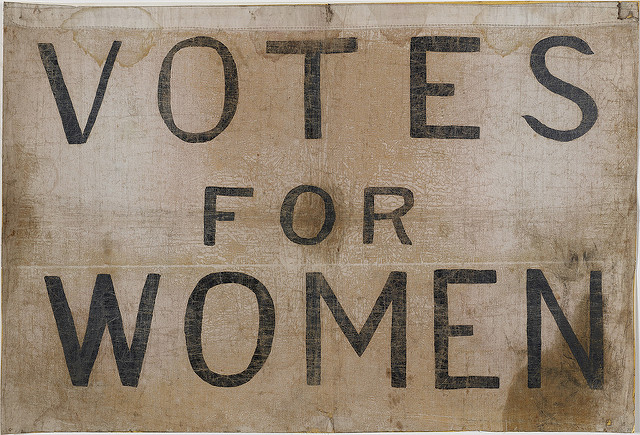
This blog’s focus revolves around English suffragette Edith Rigby who was born in Preston in 1872 and is considered to be one of the city’s leading forces in the push to achieve women’s suffrage. She was educated at Cheltenham Ladies’ College and later went onto forming her own school titled St. Peter’s School which was aimed at educating the women and girls of Preston. It permitted women to continue their education which would have otherwise ended at eleven. This blog will outline her past life as well as discussing her participation to feminism.
Due to where she lived, she was within the vicinity of Preston’s poorest areas. In addition to this, her dad was a surgeon which meant that Edith would see that many patients were from the working class. Thus, from an early age she speculated that differences existed between working and middle-class women. Furthermore, following marriage and having three children she worked spectacularly hard to improve the lives of women and girls, particularly those working in local mills.
Activism:
Being a strong advocate of women’s rights, Edith took much into her own hands in order to succeed in battling inequality. She was a leading member in starting the local suffrage movement and was even one of the first Preston women to ride a bike. Furthermore, she fought against unfair divorce laws and founded the Brook Street Club for mill girls.
Edith Rigby undoubtedly aided the push for women’s suffrage, however, what Edith Rigby is most well-known for is her increasingly radical and shocking acts in attempt to raise awareness and support for the cause.
For instance, some of her most famous actions included the tarring of Lord Derby’s statue in Miller Park as well as the burning down of Lord Leverhulme’s bungalow in Rivington. This isn’t all, she also constructed the bombing of Liverpool Cotton Exchange. As a consequence of such illegal action some would argue it has tainted her legacy. Whilst it did succeed in drawing attention to her cause, it was not necessarily good attention and could have potentially dissuaded people to join her fight. On the other hand, others have presented the idea that intense acts like these raised awareness and arguably got many other people to join the push to secure women’s rights. It should also be recognised that Edith did much more for feminism than the acts stated above. A crucial example includes that she founded Preston’s first branch of ‘The Women’s Social and Political Union’ which has been acknowledged as being more than just a political institution. It catered for the feminist community and created deep bonds between members. Therefore, even those who disagree with Edith’s radical actions should be aware of the more tame work she did for the movement.
Through approaching the topic of Edith’s activism, a significant question that can be posed is ‘Did radical campaigns such as Edith Rigby’s help or hinder the women’s suffrage movement?’. Have your say!
Come down to the Manchester Central library and access our archives to find out more on the suffrage movement, radical feminists and more! You could even have a look to see what our friends at Lancashire Record Office in Preston hold on Edith Rigby by exploring their archive catalogue.
Also, make sure to also follow our blog and other social media accounts to keep up to date with our new material.
This blog is brought to you by a student on placement between Manchester Metropolitan University and Archives+
Emma Humphreys, Second year student
Sources used:
Phoebe Hesketh, My Aunt Edith: A Life of Edith Rigby

